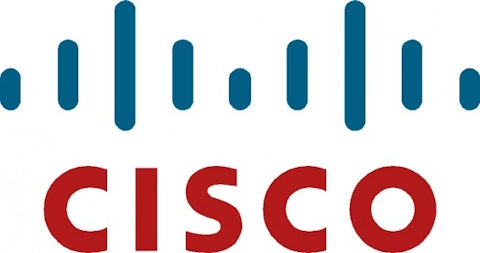On this day in economic and business history …
What is the Dow Jones Industrial Average without any consumer-facing industrial company? The venerable index found itself in a bind in mid-2009, as General Motors Company (NYSE:GM), the only Dow stock that might be called a “consumer industrial,” collapsed into bankruptcy. What company might replace it? Could the Dow retain its identity as a barometer of American industrial strength if its only heavy-industry concerns built aircraft and earth-movers far beyond the price range of average Americans?
Perhaps it could. On June 8, 2009, the Dow’s editors tapped Cisco Systems, Inc. (NASDAQ:CSCO) to replace the belly-up automaker, and also replaced floundering Citigroup Inc. (NYSE:C) with Travelers Companies Inc (NYSE:TRV), its onetime subsidiary. When the change was announced, Dow Jones editor-in-chief Robert Thomson noted that Cisco Systems, Inc. (NASDAQ:CSCO) was the right choice “because its communications and computer-networking products are vital to an economy and culture still adapting to the Information Age – just as automobiles were essential to America in the 20th century.” Citigroup Inc. (NYSE:C)‘s ouster was necessary as well, since its financial-crisis struggles had left the government with a substantial stake, and had left the bank in the midst of a “substantial restructuring.”
Despite its high praise, Cisco Systems, Inc. (NASDAQ:CSCO) turned out to be a Dow laggard — its 30% gain in the four years following the change has thus far been nearly 45% below the index’s return over that same time frame. Travelers Companies Inc (NYSE:TRV), on the other hand, proved a better choice than Citigroup, as the former has gained 110% to the latter’s 50% since the change.
Mmm, snacktacular
In another universe, the Dow might have chosen to replace General Motors Company (NYSE:GM) with the world’s largest diversified food processor: PepsiCo, Inc. (NYSE:PEP), which took on its modern form (or at least the better part of it) on June 8, 1965, when Pepsi-Cola merged with Frito-Lay. Pepsi was already a successful multinational at the time, with operations in 107 countries, and comments from CEO Donald Kendall revealed a pseudo-Machiavellian drive to create a whole world of snackers through the export of Frito-Lay brands. “Just as we exported soft drinks after World War II,” he boasted, “we can export the snack habit. The snack food field is wide open, and our big opportunities are in the international field.”
In the year before the merger, Pepsi-Cola reported $272 million in sales, compared with $184 million for Frito-Lay. The company would — as long-term investors know — blow past that combined $456 million in sales as it expanded its line of brands. Four decades later, PepsiCo, Inc. (NYSE:PEP) was a true giant, with a reported $32.6 billion in worldwide sales — representing an annualized revenue growth rate of 11.5%.
The article Was Cisco Really a Good Choice for the Dow? originally appeared on Fool.com and is written by Alex Planes.
Fool contributor Alex Planes has no position in any stocks mentioned. The Motley Fool recommends Cisco Systems, General Motors, and PepsiCo and owns shares of Citigroup Inc (NYSE:C) and PepsiCo.
Copyright © 1995 – 2013 The Motley Fool, LLC. All rights reserved. The Motley Fool has a disclosure policy.




